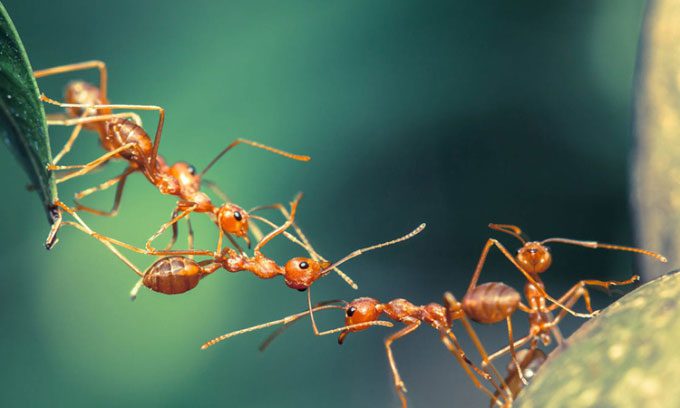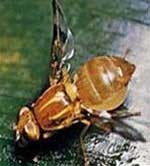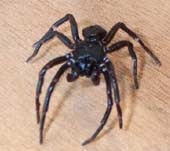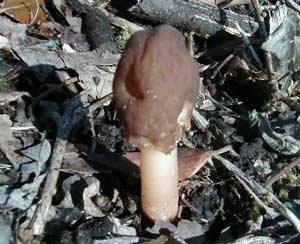Through extensive data collection and analysis, a German research team estimates the number of ants in the world to be approximately 20 million trillion.
How many stars are in the Milky Way? How many grains of sand are in the Sahara Desert? How many ants live on Earth? These questions seem impossible to answer. However, through extensive data analysis, scientists are getting closer to finding the answers.

Ants form bridges to help each other move. (Photo: Getty).
The research team led by Sabine Nooten and Patrick Schultheiss, two biologists in Würzburg, Germany, is seeking answers to the third question. Their new study was published in the journal Proceedings of the National Academy of Sciences on September 19.
To estimate the number of ants, the experts reviewed numerous existing studies, ultimately selecting about 500 relevant studies and compiling them into a database. “According to our estimates, the global ant population is 20 followed by 15 zeros, which means 20 million trillion ants“, Nooten stated.
Their biomass reaches up to 12 million tons of carbon. “This figure surpasses the total biomass of wild mammals and birds, corresponding to about 20% of human biomass”, Schultheiss added.
Ants live in almost all environments, except the polar regions. This new study is the first to investigate the distribution of ants based on actual observations. The results show that tropical regions have the highest ant density. Additionally, forests and arid areas yielded the most specimens, while they are rarer in areas heavily impacted by humans. In the future, researchers will explore what environmental influences affect ant distribution and how this may change, especially in the context of climate change.
Studying the number and distribution of ants is very important. They significantly impact nutrient cycling, soil turnover, and seed distribution. It is estimated that ants move up to 13 tons of soil annually per hectare. However, ants can also have negative impacts. Invasive species, such as fire ants, can harm local biodiversity.





















































